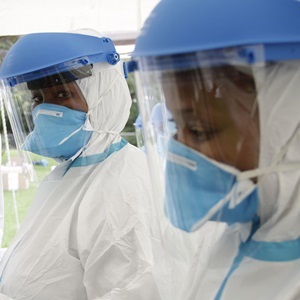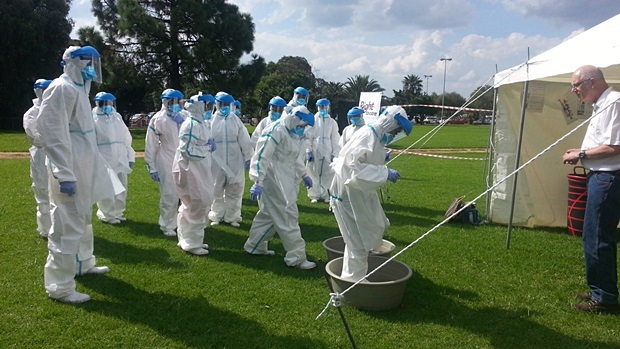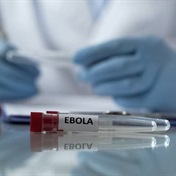
Right to Care Human Resources manager Niri Santhilal spoke to Health24 about the 20 nurses and three paramedics who will depart for Sierra Leone on Friday to help treat Ebola patients.
This is part of a campaign with the African Union Support to Ebola Outbreak in West Africa (ASEOWA) and the South African government and follows the deployment of a doctor and 10 nurses through the non-profit organisation Right to Care in January.
Read: Second SA team join the fight against Ebola
Santhilal was involved in the recruitment and training of both groups and said the health care workers, which include nationals from Zimbabwe and Botswana, will be remunerated.
"They applied for the positions we advertised in the media... They also responded to the call for health care workers in the media."
The team, which already completed two days of deployment training by the Africa Union (AU) and health department officials, will receive two more weeks of intensive training in Sierra Leone before starting their duties.
"This training is facilitated by the AU and it is job specific which covers clinical issues and PPE (Personal Protection Equipment)."

Image: Health workers in South Africa participate in training to help combat Ebola. (Supplied)
Santhilal said there is only one concern. "The only thing to be concerned about is their safety protocols so that they don’t contract the virus."
He added that some workers have experience in dealing with Malaria, but not in Ebola.
The health workers can also expect to be working long shifts. "Their work schedule is 6 weeks work and 1 week time off," said Santhilal.
Watch: How will the world prepare for future pandemics like Ebola?
In a statement on Monday, Professor Ian Sanne of Right to Care said the South African team that is already in Sierra Leone worked long shifts each day, some of the time in full protective clothing and at other times doing laboratory work or other duties.
"They are learning to treat a highly infectious disease effectively. The knowledge they gain will be useful in knowing how to better treat other crisis outbreaks."
Although the number of Ebola cases was decreasing, Health Minister Aaron Motsoaledi said South Africa's efforts were helping to address Ebola "fatigue".
"South Africa's involvement, which began last year, has been extensive and has included mobilising both a domestic response to prevent the entry of Ebola into South Africa, as well as an external health and humanitarian assistance programme to support affected countries."
The health department mobilised support amounting to almost R60 million. This included establishing a National Institute for Communicable Diseases diagnostic laboratory, which had tested over 6000 specimens for Ebola.
"The laboratory teams rotate every five weeks and are also training local personnel. We have also provided 16 000 protection suits and we have sent ambulances, scooters, drugs, generators, autoclaves for sterilisation, and food," said Motsoaledi.
Also read:
SA medical team ready for Ebola fight




 Publications
Publications
 Partners
Partners











